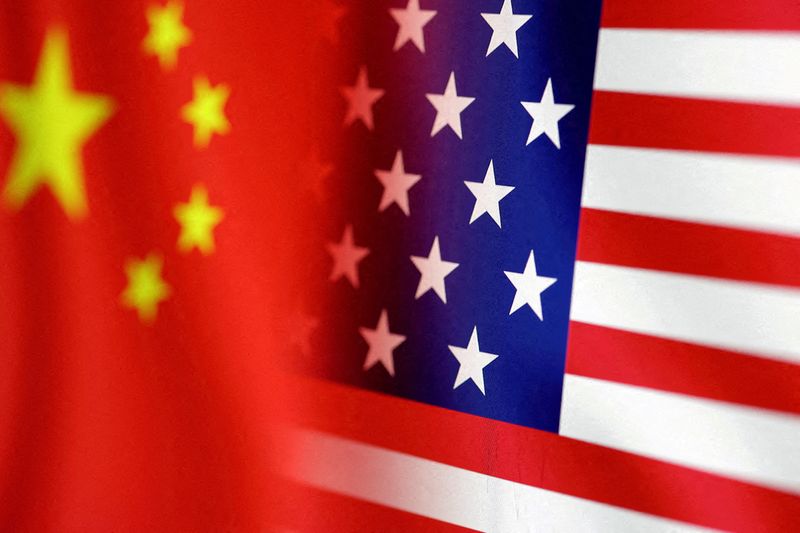Biden proposes banning Chinese vehicles, 'connected car' technology from US roads
By David Shepardson
WASHINGTON (Reuters) -The U.S. Commerce Department on Monday proposed prohibiting key Chinese software and hardware in connected vehicles on American roads due to national security concerns, a move that would effectively bar Chinese cars and trucks from the U.S. market.
The planned regulation, first reported by Reuters, would also force American and other major automakers in years ahead to remove key Chinese software and hardware from vehicles in the United States.
President Joe Biden's administration has raised concerns about data collection by connected Chinese vehicles on U.S. drivers and infrastructure and potential foreign manipulation of vehicles connected to the internet and navigation systems. In February, the White House ordered an investigation.
The proposed prohibitions would prevent testing of self-driving cars on U.S. roads by Chinese automakers and extend to vehicle software and hardware produced by Russia and could be extended to other U.S. adversaries.
The proposal would make software prohibitions effective in the 2027 model year. The hardware ban would take effect in the 2030 model year or January 2029.
The Commerce Department is giving the public 30 days to comment on the proposal and hopes to finalize it by Jan. 20. The rules would cover all on-road vehicles but exclude agricultural or mining vehicles not used on public roads, as well as drones and trains.
The move is a significant escalation in U.S. restrictions on Chinese vehicles, software and components. This month, the Biden administration locked in steep tariff hikes on Chinese imports, including a 100% duty on electric vehicles and hikes on EV batteries and key minerals.
"When foreign adversaries build software to make a vehicle that means it can be used for surveillance, can be remotely controlled, which threatens the privacy and safety of Americans on the road," Commerce Secretary Gina Raimondo said. "In an extreme situation, a foreign adversary could shut down or take control of all their vehicles operating in the United States all at the same time causing crashes, blocking roads."
There are relatively few Chinese-made cars or light-duty trucks imported into the U.S. Raimondo said the department is acting "before suppliers, automakers and car components linked to China or Russia become commonplace and widespread ... We're not going to wait until our roads are filled with cars and the risk is extremely significant."
Nearly all newer cars and trucks are considered "connected" with onboard network hardware for internet access, allowing sharing of data with devices inside and outside the vehicle.
The Commerce Department said the rule would amount to a ban on all vehicles manufactured in China but would allow Chinese automakers to seek "specific authorizations" for exemptions.
"We anticipate at this point that any vehicle that is manufactured in China and sold in the U.S. would fall within the prohibitions," said Liz Cannon, who heads the Commerce Department's information and communications technology office.
She added the regulation would force General Motors (NYSE:GM ) and Ford Motor (NYSE:F ) to stop selling vehicles imported from China in the U.S.
The U.S. has ample evidence of China prepositioning malware in critical American infrastructure, White House National Security Adviser Jake Sullivan told the briefing.
"With potentially millions of vehicles on the road, each with 10- to 15-year lifespans the risk of disruption and sabotage increases dramatically," Sullivan said.
Chinese Foreign Ministry Spokesperson Lin Jian said China urges Washington "to respect market principles and provide Chinese companies with an open, fair, transparent, and non-discriminatory business environment. China will firmly safeguard its legitimate rights and interests."
The Alliance For Automotive Innovation, a group representing major automakers including GM, Toyota (NYSE:TM ), Volkswagen (ETR:VOWG_p ) and Hyundai (OTC:HYMTF ), said some automakers may need more time to comply.
The group said there is "very little" connected vehicle hardware or software "that enters the U.S. from China. But this rule will require auto manufacturers in some cases to find alternate suppliers."
Source: Investing.com
